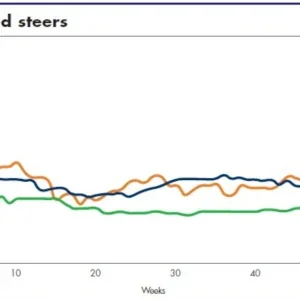
Stahl, a provider of speciality coatings and treatments for flexible materials, has announced the latest addition to its edge paint portfolio: a bio-based solution for luxury accessories that addresses the current lack of bio-based product in the edge paint category. The company says that Stahl Ymagine, its first bio-based edge paints range, has been developed with environmentally conscious consumers in mind, who increasingly seek more sustainable fashion choices.
The Stahl Ymagine products – a primer and colour coats with three different finishes – offers formulations with more than 60% bio-based content. The range is part of the Stahl Ympact family of renewable carbon solutions – a key part of Stahl’s efforts to de-fossilise the coatings value chain. All Ympact products contain between 25% and 70% renewable carbon content.
Stahl claims Ymagine performs “exceptionally well in key aspects, such as rub fastness, flexibility, hydrolysis resistance, adhesion and colour transfer”.
Stahl edge paints are used by luxury goods brands, among others, for handbags, belts and other accessories.
Natural materials
According to Stahl’s Mar Teixido, bio-based and natural raw material portfolios have flourished across the industry in recent years.
“Stahl has always offered water-based edge coating solutions – it is part of our core business,” says Teixido. “Our R&D teams are an integral part of this industry-wide shift, experimenting with new formulations that enable the transition from fossil-based feedstocks to renewable carbon-based feedstocks.”
Teixido continues: “Progress with such polymer formulations has been slow over the past decade. That’s because the raw materials available were largely the same as the old fossil-based materials. Fortunately, bio-based edge paints are finally having their moment… with our research into edge coatings now commercially viable.”
The benefits of using bio-based formulations includes helping brands to transition from fossil-based to renewable raw materials while maintaining high standards of quality and durability, while an approach to sustainability that also enhances product performance can help to demonstrate a fashion brand’s commitment to greener practices. Teixido has seen a shift as companies look to capitalise on such benefits.
“Brands in the fashion industry – especially luxury brands, but also more affordable ones – are definitively moving towards more sustainable practices,” says Teixido. “We are seeing this trend among our customers, particularly in Europe, where regulatory action and consumer pressure have increased scrutiny of the fashion industry’s carbon footprint.
“With so many brands looking to take the lead in sustainability, brands using bio-based edge paints can benefit from further competitive differentiation.”
Teixido, however, sounds a note of caution for businesses.
“Bio-based solutions are still relatively new in the chemical industry, [and] they will certainly play an important role in achieving the decarbonisation targets of both the chemical and the fashion industries,” he says. “Nonetheless, it is also crucial to mention the importance of robust life cycle assessments when using bio-based raw materials.
“Not all bio-based alternatives are sourced responsibly. Using them can have consequences across several environmental, social and governance (ESG) topics. At Stahl, we follow strict validation criteria following leading ISO standards and have developed our own ESG Roadmap to 2030, which outlines how we intend to make a positive impact in several areas.”
Looking ahead over the next decade, Stahl is convinced that there are further opportunities for innovation in bio-based raw materials. To pursue this, it has established a dedicated research and development team focused on green chemistry. It is also developing partnerships with start-ups on certain innovation projects. Meanwhile, in the medium term, the company expects to see exciting developments in the use of even more innovative natural and bio-based raw materials in formulations.






